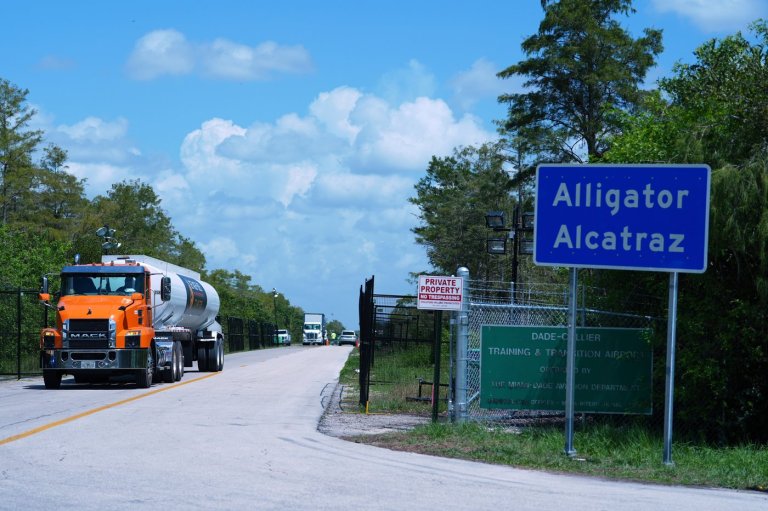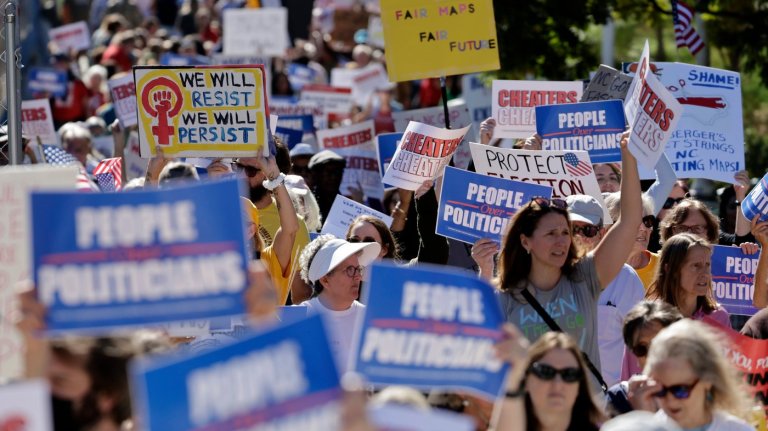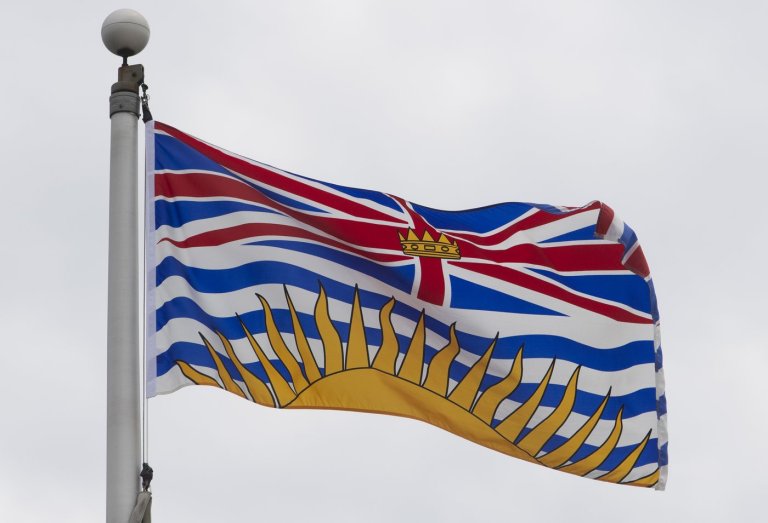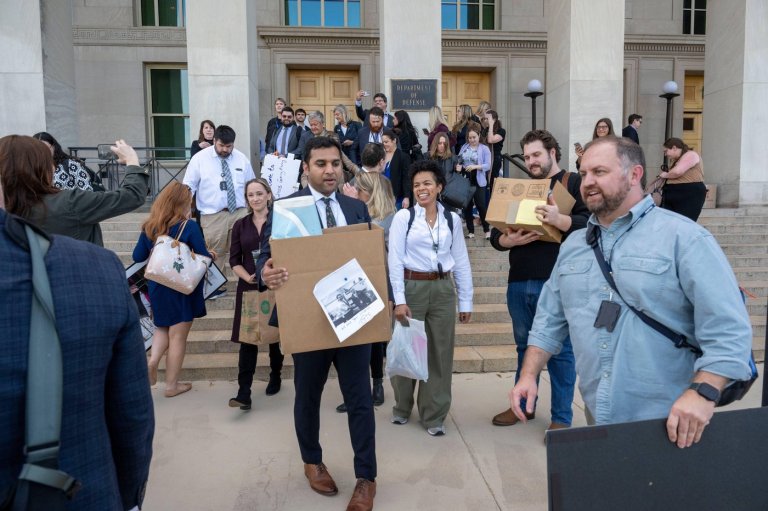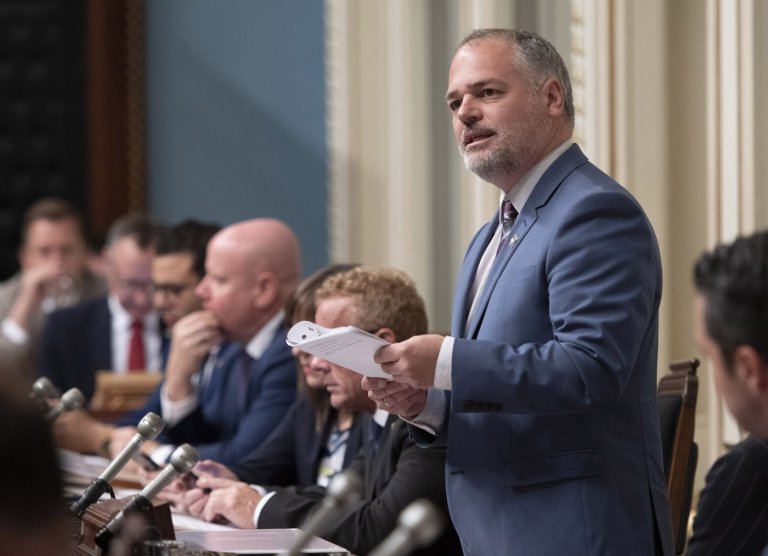Wildfire fighters, evacuees call on feds to restore funds for equipment and training
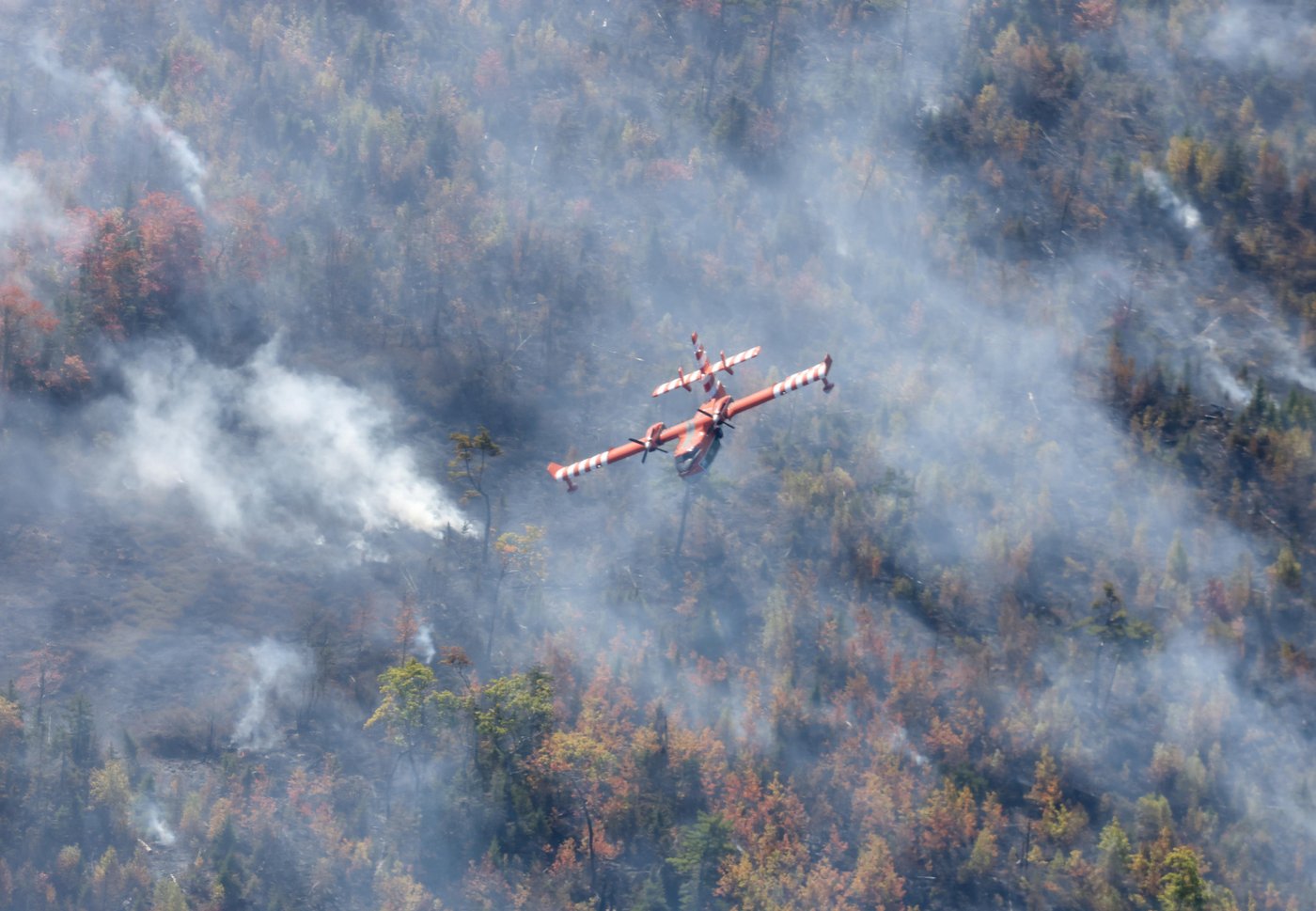
OTTAWA — When Jennifer Saulnier fled her home with her dog in Tantallon, N.S., in May 2023, her phone started buzzing as she sat in stalled traffic.
Her home monitoring system alerted her first to a window break, then smoke, then fire. Five minutes after “narrowly escaping” from her driveway, she said, her house was gone.
“Like many Canadians, I thought climate change was something that would affect future generations,” she told a press conference in Ottawa on Wednesday, holding one of her son’s charred hockey medals and a melted coin given to him by his grandparents.
“I know the impacts of climate change are here. I lived through it, and we’re not ready.”
Saulnier, volunteer firefighters and Indigenous wildfire guardians are meeting with MPs this week to push the government do more to prevent seasonal wildfires.
While Saulnier lost her house during the worst wildfire season on record — when fires consumed 15 million hectares — the summer Canada just experienced was only marginally better.
This year’s wildfire season, the second-worst on record, saw nearly 9 million hectares consumed — larger than the area of New Brunswick and P.E.I. combined and more than double the 10-year average.
Saulnier and her group are calling on the government to restore funding for a program to help purchase firefighting equipment and training.
Ottawa earmarked $308 million in 2022 to help provinces, territories and First Nations buy firefighting equipment, and another $39 million to train 1,000 new community-based firefighters.
But halfway through that five-year commitment, all of the funding has been allocated and the government isn’t taking any more applications.
“Every year wildfire firefighters tell us the same thing — they are not ready either. They need more crew, more support and more equipment to defend our communities,” Saulnier said.
“These are people who risk their lives to protect ours.”
Harold Larson, a 20-year wildland firefighting veteran, called on the federal government to offer sustained firefighting support to First Nations, provinces and territories.
“The fact is, our system was built for forests before climate change,” Larson told the press conference.
“The federal government helps co-ordinate in a crisis, but we need national leadership before that crisis, so people and equipment are ready, positioned and talking to each other when the wind shifts.”
Critics have called on the federal government to create a national firefighting service but Ottawa has been noncommittal.
Speaking to reporters in June during a press conference to update Canadians on the wildfire season, Emergency Management Minister Eleanor Olszewski would only say the government was still looking into it.
“One of the things we want to make sure is that we don’t end up spending a lot of time and effort duplicating services that are already available,” she said at the time.
Pressed to say why the government was still looking into it two years after the worst wildfire season on record, Olszewski said in June it wants to ensure what the government does is “sensible.”
On Wednesday, Olszewski did not stop to answer questions about whether Canada would have a national firefighting agency in place by next wildfire season.
A spokesperson for her office said they could not comment on the status of the proposal but were considering all options.
This report by The Canadian Press was first published Oct. 22, 2025.
Join the Conversation!
Want to share your thoughts, add context, or connect with others in your community?
You must be logged in to post a comment.














